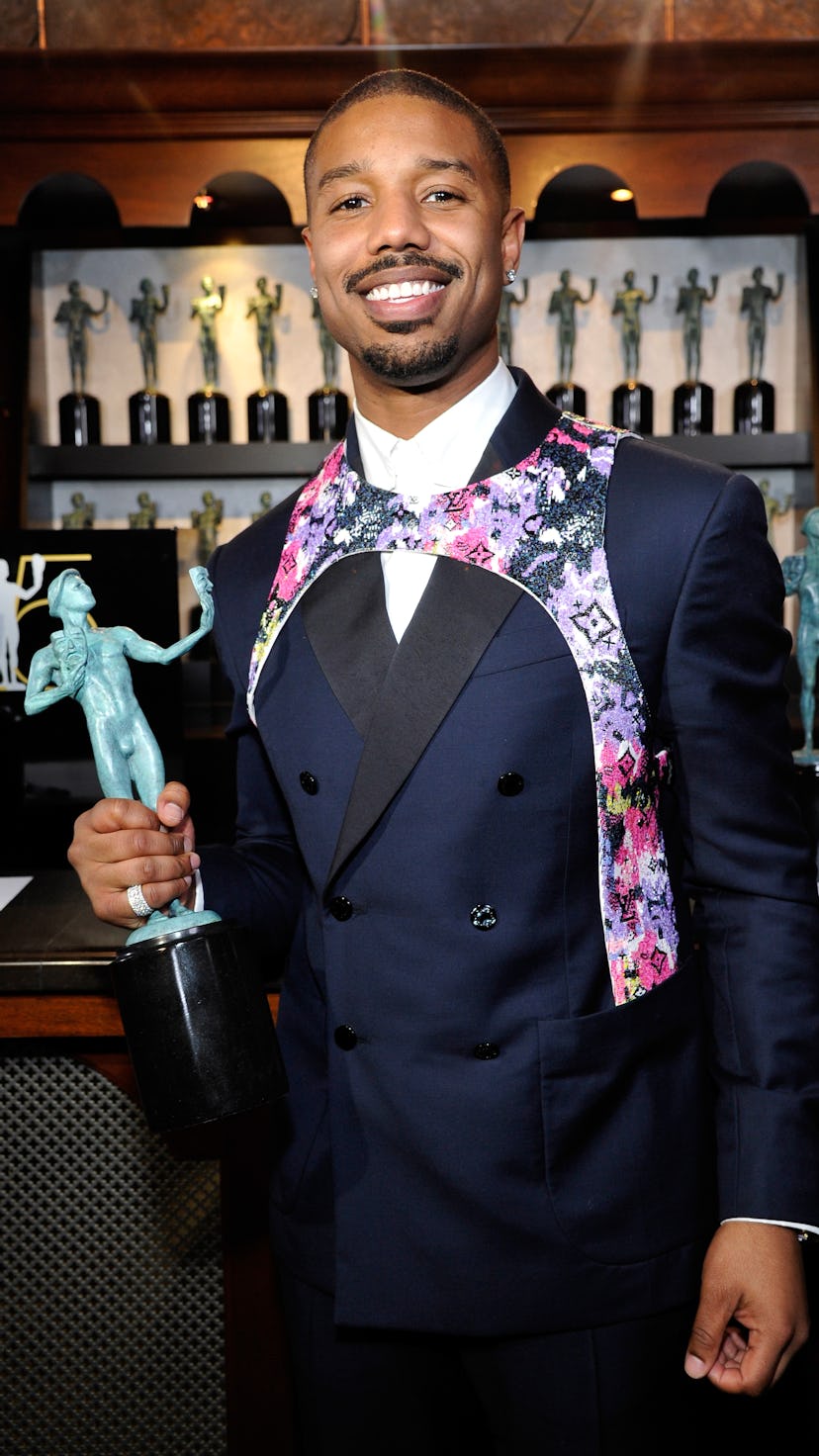Paras Griffin/Getty Images Entertainment/Getty Images
Michael B. Jordan
The Black Panther star recently celebrated the launch of his J'Ouvert rum, which was advertised as a tribute to a Trinidadian carnival of the same name. But many people online — including Nicki Minaj — took issue with the actor using that name for his product without having any personal ties to the region. On June 22, he announced on his Instagram Stories that he would be changing the name. “We hear you,” he wrote. “I hear you and want to be clear that we are in the process of renaming.”
Axelle/Bauer-Griffin/FilmMagic/Getty Images
Ariana Grande
“There is a difference between appropriation and appreciation,” Grande wrote in series of now-deleted tweets from 2019. At the time, the “Positions” singer was slammed for cultural appropriation while promoting her song “7 Rings.” In addition to using Japanese characters on her merch, the pop star got the song’s title tattooed on her hand. Unfortunately, her ink was misspelled and the result was a tattoo that loosely translated to “BBQ grill.”
Neilson Barnard/Getty Images Entertainment/Getty Images
Katy Perry
The “Daisies” singer doesn’t exactly have a clean record when it comes to cultural appropriation. In 2013, Perry dressed up as a geisha at the American Music Awards for a performance of her song “Unconditionally.” The following year, she wore cornrows in her music video for “This Is How We Do.” She later addressed both of those decisions on a podcast with civil rights activist DeRay McKesson. “I didn’t know that I did it wrong until I heard people saying I did it wrong,” she said after promising to educate herself.
Rihanna
“Our culture is not your costume,” one fan commented when Rihanna shared a controversial photo on Instagram in February. In the picture, the pop star was posing in pair of satin boxer shorts from her Savage X Fenty lingerie line. The “Needed Me” singer was also wearing a pendant featuring the Hindu god Ganesha. “Can we stop sexualizing people’s religion for clout,” another frustrated fan wrote.
Jason LaVeris/FilmMagic/Getty Images
Justin Bieber
The “Hold On” crooner first debuted dreadlocks at the IHeartRadio Music Awards in 2016 and was criticized heavily for appropriating Black culture. In 2021, he sported the hairstyle again and was met with more backlash online. “How do you make an album about justice? Post about Black Lives Matter then turn around and post yourself wearing dreads????” one fan commented on Instagram.
Jeff Kravitz/FilmMagic, Inc/Getty Images
Kim Kardashian
The Keeping Up With the Kardashians star has come under fire for cultural appropriation on more than one occasion — and not only for wearing Fulani braids. Prior to the release of her shapewear line in 2019, the reality star planned on calling the brand Kimono. Needless to say, that didn’t go over very well, and Kardashian renamed it Skims.
Karlie Kloss
Model Karlie Kloss strutted onto the runway at the 2012 Victoria’s Secret Fashion Show wearing Native American-inspired lingerie — headdress included. The brand later apologized for featuring the look at their show. “We are sorry that the Native American headdress in our fashion show has upset individuals,” the company said in a statement. “The outfit will be removed from the broadcast.” Kloss issued an apology on Twitter as well.
ROBYN BECK/AFP/Getty Images
Beyoncé
Believe it or not, even Beyoncé makes mistakes. In 2016, the legendary entertainer received a ton of backlash following the release of Coldplay’s “Hymn For The Weekend” music video. In the video, Bey sported henna tattoos and traditional Indian clothing.
Axelle/Bauer-Griffin/FilmMagic/Getty Images
Selena Gomez
Beyoncé isn’t the only artist who’s appropriated Indian culture. In 2013, Gomez performed her hit single “Come and Get It” wearing an Indian-inspired outfit on more than one occasion. She also wore a bindi, a dot that is traditionally worn on the center of the forehead.
